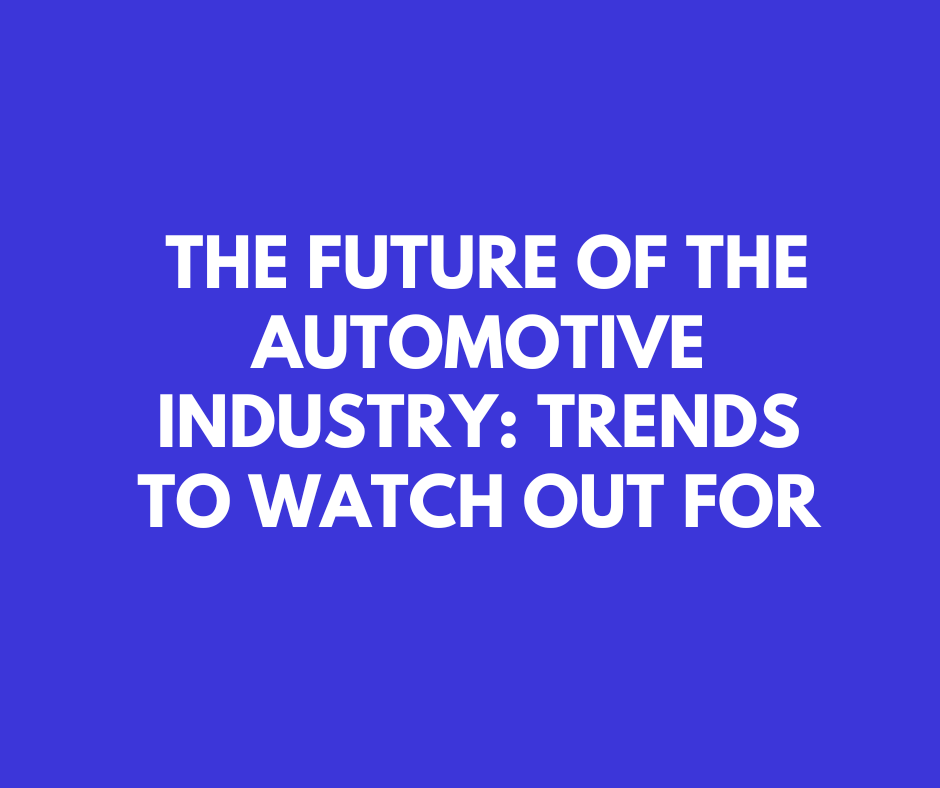
The automotive industry has come a long way over the past few decades. With advances in technology and shifting consumer preferences, the industry is constantly evolving. So, what does the future of the automotive industry look like? In this post, we'll explore some of the key trends that are shaping the future of the automotive industry.
Electric Vehicles (EVs)
Electric vehicles are becoming increasingly popular as consumers become more environmentally conscious. EVs offer a range of benefits, including lower operating costs, reduced emissions, and a quieter ride. With governments around the world offering incentives to encourage the adoption of EVs, it's likely that we'll see a continued shift toward electric vehicles in the coming years.
Autonomous Vehicles
Autonomous vehicles have been a hot topic in the automotive industry for several years now. While fully autonomous vehicles are still some way off, we're already seeing semi-autonomous features such as lane departure warnings and adaptive cruise control becoming more commonplace. As technology continues to improve, we can expect to see more fully autonomous vehicles on our roads in the near future.
Shared Mobility
The rise of ride-hailing services such as Uber has paved the way for shared mobility services. Shared mobility refers to the use of vehicles on a shared basis, rather than individual ownership. This could include car-sharing services, where people rent vehicles by the hour, or ride-sharing services, where people share rides with others going in the same direction. As cities become more crowded and the cost of vehicle ownership rises, shared mobility is likely to become increasingly popular.
Connected Cars
Connected cars are vehicles that are equipped with internet connectivity and a range of sensors and cameras. These features allow the vehicle to communicate with other vehicles and infrastructure, providing real-time data on traffic and road conditions. Connected cars also offer a range of convenience features, such as remote start and keyless entry. As the technology becomes more advanced, we can expect to see even more features and capabilities added to connected cars.
Alternative Fuel Vehicles
While electric vehicles are currently leading the way in terms of alternative fuel vehicles, there are a range of other options available. These include hybrid vehicles, which combine electric and gasoline power, and hydrogen fuel cell vehicles, which produce electricity through a chemical reaction between hydrogen and oxygen. As technology improves and the infrastructure for these vehicles becomes more widespread, we can expect to see a wider range of alternative fuel vehicles on our roads.
In conclusion, the automotive industry is evolving at a rapid pace, with new technologies and consumer preferences driving change. From electric vehicles to connected cars and shared mobility, the future of the industry looks exciting and full of possibilities. As a consumer, it's important to stay informed about these trends and to consider how they might impact your vehicle purchase decisions in the years to come.